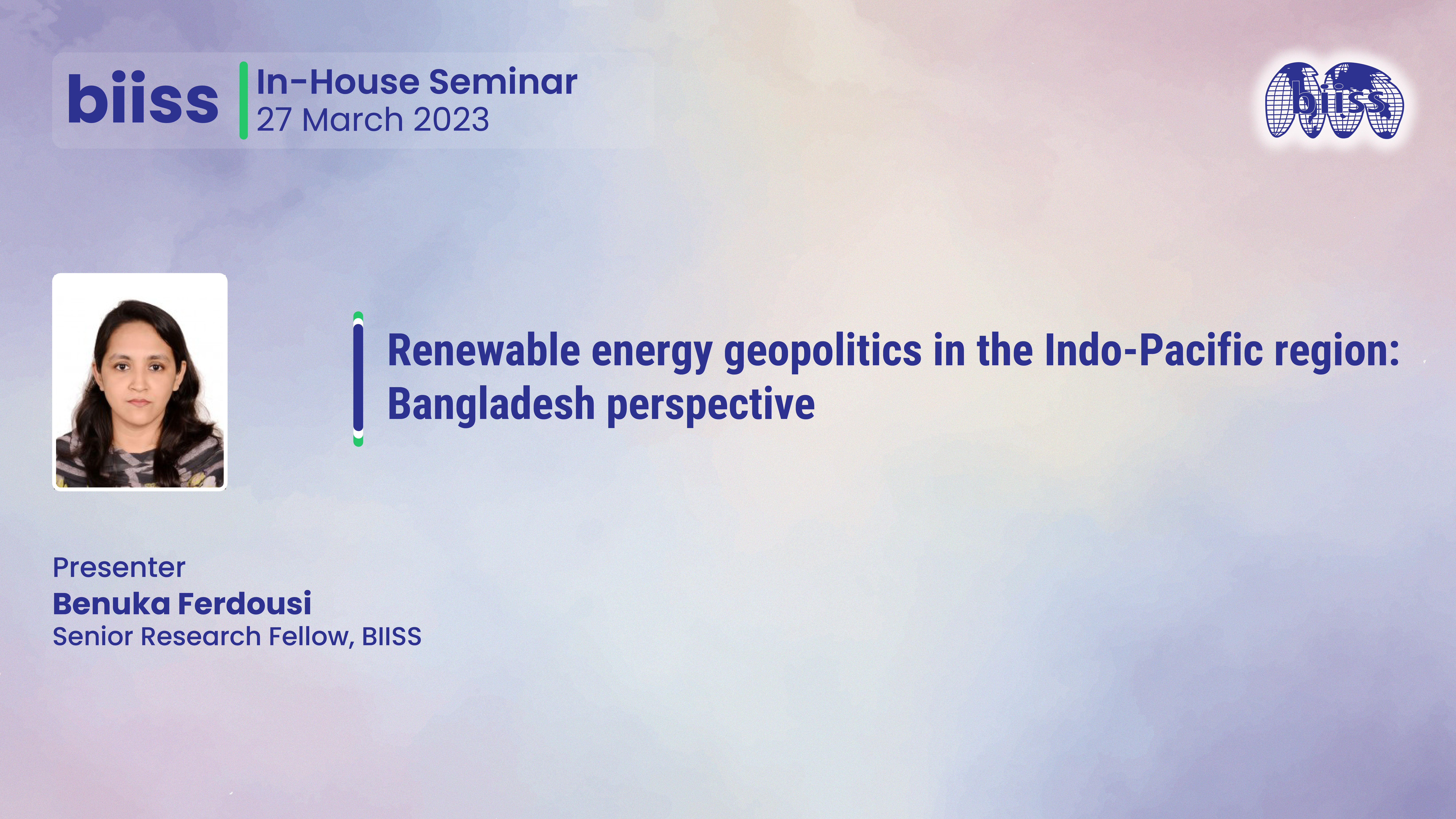"Renewable energy geopolitics in the Indo-Pacific region:Bangladesh perspective"

This in-house seminar explores the emerging field of renewable energy geopolitics in the Indo-Pacific and analyzes its specific implications from a Bangladesh perspective. The global transition away from fossil fuels is not just an environmental imperative; it is fundamentally reshaping international power dynamics, creating new dependencies, and sparking competition over resources and technology. This discussion will examine how the race for dominance in renewable energy technologies—such as solar panels, wind turbines, and battery storage—is becoming a new arena for great power competition, particularly between the US and China. The seminar will analyze the control over critical mineral supply chains (e.g., lithium, cobalt, rare earths) that are essential for green technologies and how this is creating new strategic vulnerabilities and chokepoints.
From Bangladesh's perspective, the session will assess both the opportunities and risks presented by these new geopolitical currents. It will explore how Bangladesh can leverage this competition to attract investment and technology transfer for its own ambitious renewable energy goals, while avoiding over-dependence on a single supplier. The discussion will also focus on the potential for regional cooperation in the renewable energy sector, such as cross-border electricity trade from hydropower in Nepal and Bhutan and joint development of offshore wind projects in the Bay of Bengal. The seminar will consider how a successful green energy transition can enhance Bangladesh's energy security and strategic autonomy, reducing its reliance on volatile global fossil fuel markets. By understanding the geopolitical forces at play, this seminar aims to develop a strategic framework for Bangladesh to navigate the complex interplay of energy, environment, and power politics in the Indo-Pacific.